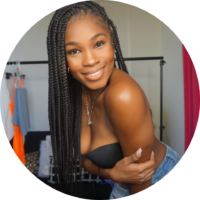The Ultimate List of Beauty Products to Calm Rosacea
Renee Zellweger, Mariah Carey and Cameron Diaz were blessed with many genetic gifts — and they have glam squads, world-class dermatologists on speed dial and sky-high beauty budgets to boot. But despite that, they have openly shared they’ve struggled with their skin. How’s that possible, you ask? These three have rosacea.
So, what exactly is rosacea?
Rosacea is a chronic skin condition that appears mostly on the face, and sometimes on the neck, chest, scalp and ears. It causes a ruddy-looking, reddened complexion that usually itches and feels hot. Though it’s known to beset Caucasian people (it was once literally referred to as “the Curse of the Celts”), experts recently discovered that any of us can be affected regardless of skin type and ethnicity.
At the most basic level, rosacea is caused by a slight abnormality in facial blood vessels. A reported 16 million Americans have rosacea, and you’re more likely to have it if you’re a woman, have fair skin, are over the age of 30, are a smoker or have a family history of rosacea.
Rosacea sufferers go through periods of remission and flare-ups, and symptoms become more severe with age. People with rosacea usually complain about their skin becoming irritated, red or flushed, often with swollen red bumps (which sometimes look similar to acne). Less frequently, toward the end of a rosacea flare-up, some people find themselves with a red, swollen nose (this condition is called rhinophyma).
Don’t want to scare you, but if it’s left untreated, there’s the scary possibility that the nasal blood vessels can get destroyed and lead to your nose looking like that permanently. Yikes! Sixty percent of people with rosacea also get something called ocular rosacea, which means they have red, itchy, burning or bloodshot eyes that appears swollen.
Because of the widely varying combination of common symptoms, rosacea can be hard to self-diagnose. After all, it does look like a classic case of acne and sensitive skin at times. On top of that, despite thousands of studies on the issue, its definitive cause is still unknown.
But here’s what we do know: Rosacea makes your skin far more likely to be extra-sensitive to irritants, so your best bet is to stay on your toes and pay close attention to your diet, lifestyle and cosmetic routine.
So enough on the nitty gritty of the problem. Let’s talk solutions.
First, follow these general guidelines from the National Rosacea Foundation next time you’re buying skincare:
- Test a product first, ideally in a small space in a peripheral area (like the neck)
- With the exception of a gentle moisturizer and sunscreen (which should be used religiously), pare your skincare routine down to the bare minimum.
- Avoid identified triggers that can worsen the condition, including alcohol (particularly white wine, ugh!), sun exposure, temperature extremes, stress, hot drinks, spicy food, exercise and drugs that dilate blood vessels, like some blood pressure medications.
- Read your skincare and cosmetics label carefully and omit products that contain irritants, such as fragrance (even the natural variety), all types of alcohol, witch hazel, menthol, peppermint and eucalyptus oil.
Look for products that are hypo-allergenic and specifically formulated for sensitive or redness-prone skin. To get more specific, stock your bathroom with these products and nobody will none the wiser!

Biossance Squalane + Probiotic Gel Moisturizer
According to the folks at Biossance, this lightweight moisturizer has been clinically measured to reduce redness by 23%. Like all their formulations, the product contains squalane, which fortifies the skin barrier (the uppermost layer of your skin that goes crazy if you aren’t gentle with it), along with a hefty dose of friendly probiotics (because your skin needs friendly bacteria, too — not just your gut). Red seaweed and ginger extract help reduce inflammation, irritation and redness.

Calming Zinc Soap
Dermatologist Dr. Cynthia Bailey has rosacea herself and she swears this is the most effective and safest cleanser she’s found. Its medicated with 2% pyrithione zinc to control pityrosporum yeast germs and demodex mites, both of which may increase in the pores of people with rosacea. For the rare person allergic to pyrithione zinc, she recommends a non-foaming glycerin cleansing product such as Whole Foods 365 brand glycerin bar soap, La Roche Posay Toleriane Cleanser or Neutrogena Extra Gentle Cleanser.

Radical Skincare Skin Perfecting Sunscreen SPF 30
As we mentioned earlier, sun can be a huge trigger for rosacea sufferers. This is why a daily sunscreen regimen is a must. Dr. Robyn Gmyrek of Union Square Laser Dermatology recommends a mineral-based sunscreen with titanium dioxide and zinc oxide, which should be at least SPF 30 and “broad spectrum” (blocks both UVA and UVB rays). Regardless of the weather, Gmyrek recommends re-applying it every four hours.

Bare Minerals Original Broad Spectrum SPF 15
Celebrity esthetician Renée Rouleau recommends mineral powders, as they’re generally less irritating on sensitive skin than liquid foundation. Plus this one does double-duty (it has built-in titanium dioxide and zinc oxide which provide sun protection).

Vapour Organic Beauty’s Illusionist Concealer
Celebrity makeup artist Katey Denno loves Vapour Organic Beauty for its products that are formulated to both treat and conceal. When picking out a concealer, Denno advises to keep the texture and color of your concealer the same texture and color as the remainder of your face. She also recommends rosacea sufferers to use yellow-tinted products (not green) for the most natural look.
Though rosacea can make finding the right skincare regimen tricky, there’s plenty of relief to be found through a combination of education, dermatological treatment and tweaks to your diet and lifestyle.
The post The Ultimate List of Beauty Products to Calm Rosacea appeared first on The Makeup Blogger.

